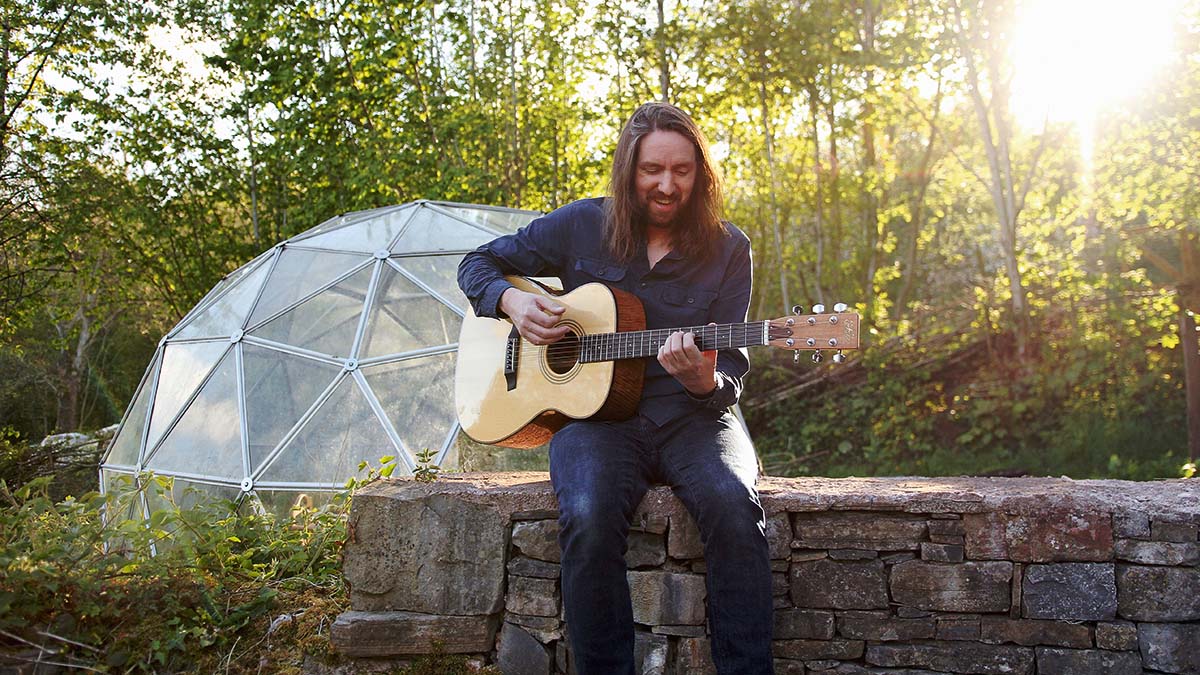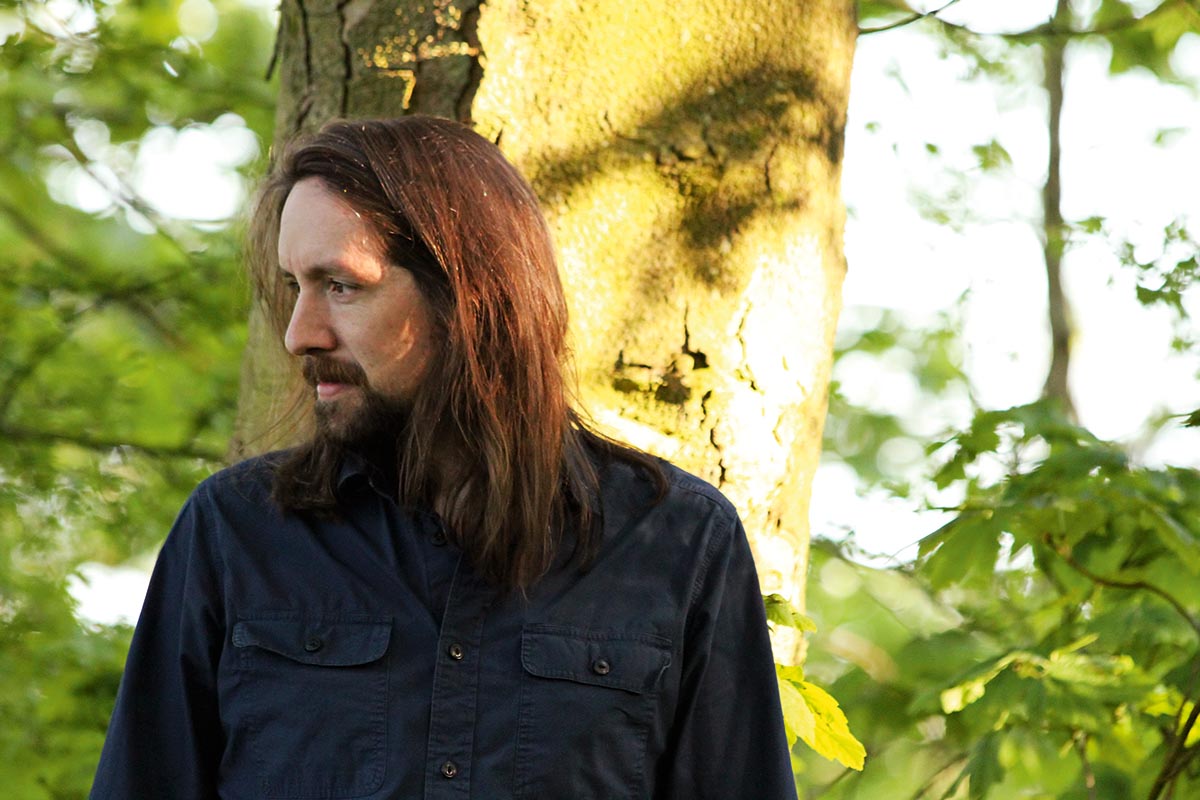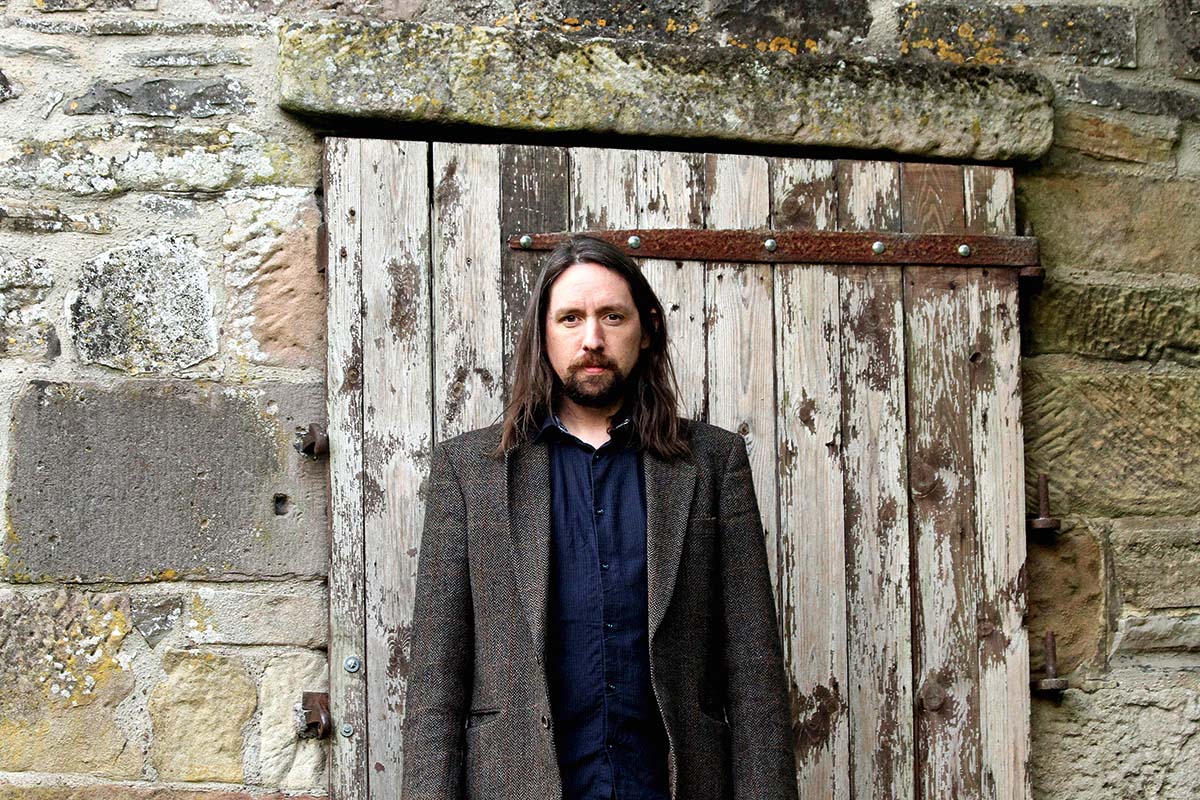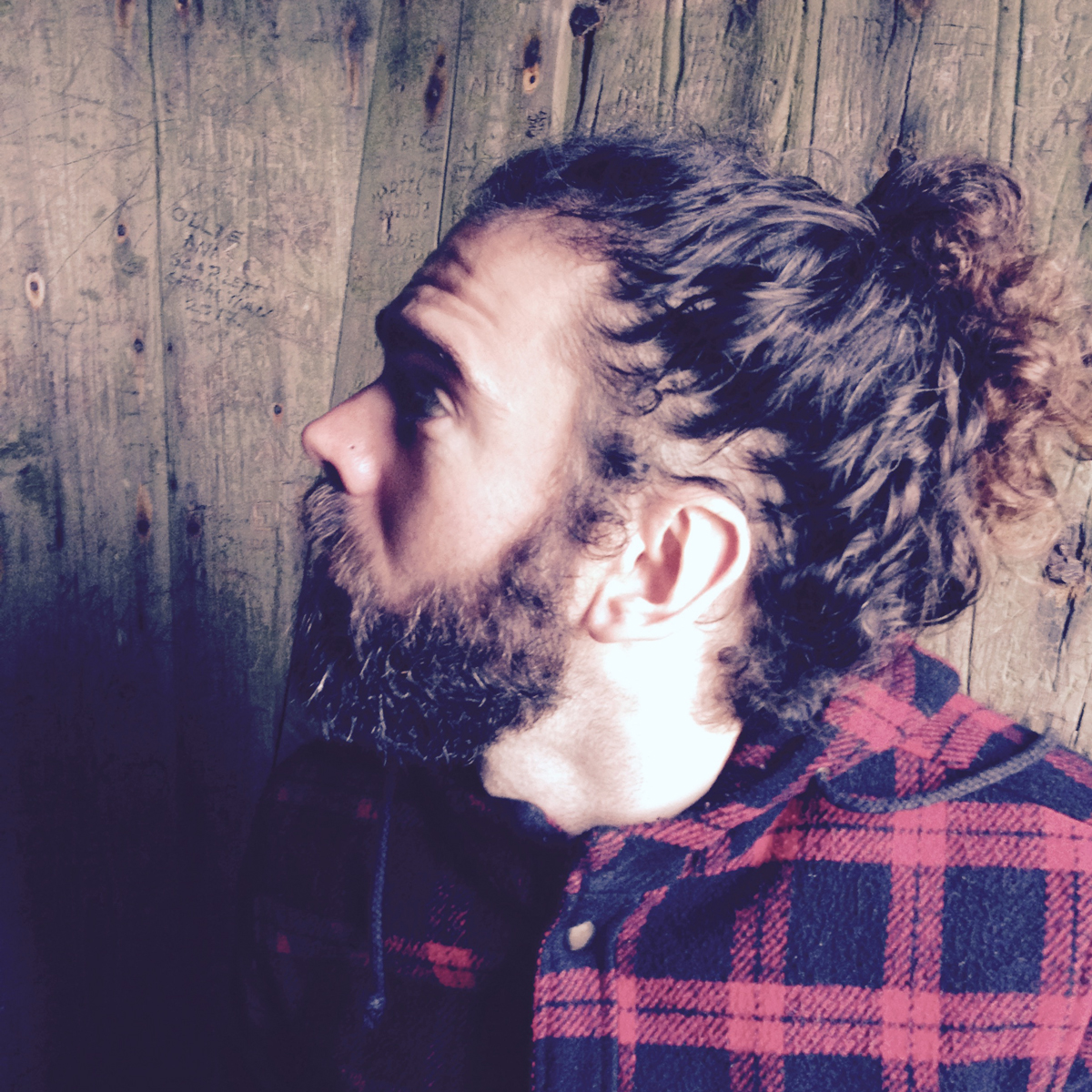Nick Jonah Davis: “It’s easy to just say, ‘I’m going to be weird,’ and then stick some things on the guitar, but I need the listener’s trust before I get weird”
The latest album from Derbyshire guitarist Nick Jonah Davis, When The Sun Came, was recorded in a church and released just before lockdown – and it could well be his finest yet

When fingerstyle guitar and lap-steel whiz Nick Jonah Davis isn’t teaching guitar, playing on other artists’ recordings or working as part of the District Musicians organisation, he makes albums that explore the art of solo acoustic instrumental music.
When The Sun Came is his fourth album and his most refined and fully realised yet, leaning more heavily on his Weissenborn guitar to produce a set of beautifully played, intricately written pieces, self-recorded in his local Atlow church.
Because of the record’s long gestation period, it’s refreshingly free of current anxieties.
“It’s a strange time to release an album,” Nick says, “but I’m glad the recording was finished by early 2020. I had it all in the can, as they say, before lockdown happened, which means the actual creative process wasn’t informed in any way by the pandemic, which is really good, because it feels like part of a sequence that has been going on for a longer time. Some of the tunes on the record have been bubbling for eight years.”
The patience surrounding the writing and release of When The Sun Came comes across in the music, and as well as significant complexity, there is also an openness and freshness to each of the 10 tracks.
If you’re in a church with no internet or anything, just your mics and guitars in a lovely sounding space, you just work with it
“I think if you’re going to make a solo guitar record, it’s a saturated niche and you need to look yourself in the eye and say that it’s a valid contribution to that field of endeavour,” Nick says. “I need to be able to think this is worth someone’s time and if they like this kind of thing they will listen to it and there will be something worthwhile in it.
“I guess as part of the process of making solo guitar music I’ve really immersed myself in it and tried to understand it a lot, and I think that has meant I’m always looking for some weird little corner that I haven’t seen anyone else go around. But that takes a long time...”
Get The Pick Newsletter
All the latest guitar news, interviews, lessons, reviews, deals and more, direct to your inbox!
Primitive Listening
When asked about albums that have had an influence, Nick namechecks Jack Rose’s Kensington Blues. “It’s a very obvious choice for a contemporary American primitive guitar record,” he says, “But what was compelling about that one was I was really interested in outsider and avant-garde music, and I was listening to a lot of strange stuff, and somehow Jack Rose bubbled up in the middle of that weird realm of music that I was investigating.
“When I heard Kensington Blues, it was the first time within that context that I thought I could do something with it. It felt like it was beckoning me and saying, ‘You could do this as well.’ I remember seeing Jack play in a church in Leeds opening for A Hawk And A Hacksaw – they were incredible, but there was this scruffy guy wandering out with a couple of acoustic guitars and just blowing my head wide open.
“I wanted to go and find this person and ask, ‘What the fuck were you just doing and how the hell did you do it?’ I didn’t do that… but Kensington Blues was the touchstone for that feeling of ‘this is very peculiar because I can understand this, but it’s also accepted in this field of outsider music that I love listening to.’”

Nick learned from that epiphany and, as self-critical as he often is, it’s clear that When The Sun Came is a record that brought out something unique in him. “What I’ve tried to do with this one is make sure everything on there feels like it’s mine,” he explains.
“I’m 11 years into solo guitar now and this [particular] album feels like the least derivative of its influences. I’m relentlessly critical of what I do – I listen back to stuff and always hear the problems, but I think that’s the same for anyone doing creative work.
“There’s a really interesting book called The Natural Classical Guitar [Lee F Ryan, 2006] that has this very '70s yoga-infused approach to playing and it says if you play a piece with 700 notes and you fluff three, then the 697 you nailed will mean nothing. Ah man, those fluffs!
“One of the hallmarks of someone who is bedded into their practice is what happens when they make a mistake live. What do you do now? Are the wheels wobbling for miles afterwards, or is it more like, ‘Okay, a mistake, now, on.’ You’re going to make mistakes and some will be appalling, but some will be beautiful.”
Church Songs
When The Sun Came was recorded in a peaceful church space. Nick explains how this environment impacted the experience of making the album and how it differed to previous sessions: “When I’ve recorded before, I’ve gone in with other people, which has been great, but I haven’t had much budget and I’ve tried to do as much as I can in as short a time as possible,” he says. “You end up asking a lot from the person recording you and you have to get it done quickly. When I listen to my earlier recordings, there’s a sense that I’m rushing.
“I didn’t want to rush this one, so I decided to put my budget into upgrading my own recording equipment. And then the village let me use the church for free, as long as I accepted that visitors would wander into my sessions if they wanted to.
“So instead of having two days to nail it, I had as long as I needed – I could just pack down and go back and forth from my house. If you’re in a church with no internet or anything, just your mics and guitars in a lovely sounding space, you just work with it and it was refreshing to think, ‘Maybe today will be rubbish, but if it is, I won’t use it,’ rather than ‘Today has to be amazing otherwise I’ve spent all this money for nothing.’”

There’s a sure sense of patience that permeates through the record, but the album also has its share of maverick music, with side B of the LP sounding slightly more experimental in places.
“Yeah, I think I backloaded a lot of the weirdness onto the second side,” Nick says. “It’s easy to just say, ‘I’m going to be weird,’ and then stick some things on the guitar and be weird, but the point for me is that I need the listener’s trust before I get weird.
“I want them to think I can write a compelling composition and perform it well, and then when I go down the rabbit hole, they’ll come with me. If I start by whacking chopsticks under the strings and spanking the whatever, they’re going to think, ‘What’s this guy up to?’”
Tools of the Trade
Aside from the black Fender Stratocaster featured on lone electric piece The Muckle Master, there are three acoustic instruments on When The Sun Came.
“The main guitar on this record is my Weissenborn copy,” Nick tells us. “It’s a relatively inexpensive handmade instrument from a builder in Italy called Ermanno Pasqualato. I had encountered lap steel only through the John Fahey end of things, but then I remember sitting watching Jack Rose playing it and thinking maybe I can play slide, because before then I’d never gotten on with upright slide guitar.
“I never knew about lap steel then and it made me see how some slide playing could sound so amazing. So I ordered this guitar and it’s one of [Pasqualato’s] earlier ones, so it’s not an exquisite instrument, but for me it’s just perfect. It’s got monster sustain and really good personality and it’s very playable. I think because it’s such a modest instrument, it’s really satisfying to find something within it that’s so compelling. It’s a beautiful guitar.”
For his fretted six strings, Nick has two very different regulars. “Another one on there is a custom Fylde Falstaff, which The Peacock Dance is recorded on,” he says. “That’s the other end of the spectrum to the Weissenborn, it’s exquisitely made and of the highest quality.
“When I eventually got a Fylde, it was almost intimidating, to the point that it’s taken me a number of years to acclimatise to it being in my day-to-day life. I had to rise to it and I think I’m there now… I’ve also knocked it over a couple of times, so it’s got some bashes, which helps, because a guitar is a tool of work. It’s stunning and I love it and it’s the guitar I was playing for my dad when he was dying, because he loved it, too.
“The one on Delta Suey is my 90s Martin SPD-16K, which was an amazing gift from my wife. It has koa back and sides and a spruce top and it really changed my life, because before I had it I really liked playing acoustic guitar, but then I was like, ‘Oh, right…’
“I think the key to a great guitar sound is a great-sounding guitar and that Martin was the first great-sounding guitar I owned; all my previous records were done mainly on that one. I also mostly continue to gig on the Martin, because it’s frightening taking the Fylde out into the world sometimes!”
- When The Sun Came is out now on Thread Recordings.
Glenn Kimpton is a freelance writer based in the west of England. His interest in English folk music came through players like Chris Wood and Martin Carthy, who also steered him towards alternate guitar tunings. From there, the solo acoustic instrumental genre, sometimes called American Primitive, became more important, with guitarists like Jack Rose, Glenn Jones and Robbie Basho eventually giving way to more contemporary players like William Tyler and Nick Jonah Davis. Most recently, Glenn has focused on a more improvised and experimental side to solo acoustic playing, both through his writing and his own music, with players like Bill Orcutt and Tashi Dorji being particularly significant.
“Even the thought that Clapton might have seen a few seconds of my video feels surreal. But I’m truly honored”: Eric Clapton names Japanese neo-soul guitarist as one to watch
“You better be ready to prove it’s something you can do”: Giacomo Turra got exposed – but real guitar virtuosos are being wrongly accused of fakery, too











